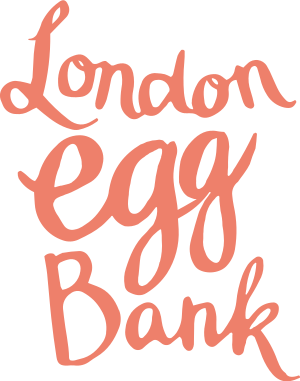FAQ
DONATING EGGS

Ask Us Anything About Donating Your Eggs
Find answers to the questions we’re asked about most often. If you don’t see your question here, contact us to find out more.
How many times will I need to visit the clinic?
You can expect a total of five or six visits to the clinic over a period of two or three months to complete the procedure of donating eggs.
How many times can I donate eggs?
According to UK regulations, an egg donor can help create up to 10 families. The decision to donate your eggs multiple times should be discussed between you and your consultant.
Will donating my eggs affect my future fertility?
Donating eggs is most unlikely to affect your fertility, or interfere with any future baby plans you may have.
Each month a woman naturally develops more than a thousand eggs but only one is ovulated – the rest dissolve and are absorbed by the body. The fertility medication you’ll receive to stimulate the ovaries will preserve a portion of these many eggs which would otherwise be absorbed.
As an egg donor, you’ll find out a lot more about your own fertility, which may be useful for your own future plans.
Egg donation is a form of fertility treatment in which a donor anonymously gives some of her eggs to an infertile patient in order to help her become a parent. Once donated, the eggs are fertilised with the recipient partner’s sperm (or with donor sperm) as in conventional IVF, and then transferred to the recipient’s womb for pregnancy. Egg donation, therefore, unlike adoption, means that the recipient is still able to experience pregnancy and has a strong biological link with the child.
Currently, there are not enough egg donors in Britain to help the number of infertile recipients who need treatment with donated eggs. This means that for many women, the only chance of conception is to go to overseas clinics for IVF with donor eggs. Egg donation schemes with overseas clinics do exist, but by becoming an egg donor here in Britain, you will be giving many infertile couples in the UK a chance at parenthood without the need for expensive treatment abroad, where regulations may differ. Women who volunteer as egg donors are therefore providing an extraordinary gift to others.
There are a number of reasons why women need egg donation, for example:
• They may have undergone treatment for cancer, such as surgery, chemotherapy or radiotherapy, which can damage the eggs and ovaries.
• Some women have undergone repeated IVF treatment cycles where they have not responded to stimulation or they have produced poor quality eggs, which failed to fertilise, or produced embryos that fail to implant.
• They may have been born with a congenital condition, which means that they have either absent or underdeveloped ovaries.
• They may have gone through a premature menopause or have lost their fertility early.
• Some women are fertile and can produce eggs but are at risk of passing on a genetic condition to their child. Using donated eggs may be the only way that these women can have a fit and healthy baby.
• Some women have tried and failed for many years to start a family, sometimes without a known cause of their infertility.
In the UK, it is illegal to offer a donor money for their eggs. However, donors are entitled to receive a fixed compensation of £985 once they have completed their donation cycle. This is to ensure the donors are not left out of pocket, for expenses such as travel or loss of earnings. By offering the donors' expense compensation, the program attracts people who are motivated by a desire to help others build families.
It depends entirely on which form of contraceptive you currently use.
If you are using the pill or the mini pill, you can take it right up to starting your treatment, which will roughly take 14 days. The nurse will instruct you when to stop taking your pill.
If you use the Mirena coil or a contraceptive implant, you’ll need to have this removed before your egg donation procedure starts.
If you use the copper coil (IUD) there is no need to remove it and you can start your egg donation process with it still in place.
If you take contraceptive injections, you’ll need to wait until you are due a new injection before starting the egg donation procedure.
You can resume your usual methods of contraception after completing your egg collection.
The main risk is that screening may reveal something about your own fertility or health which you were otherwise unaware of, for example, that you are a carrier of a genetic disease.
Egg donation is generally very safe with no long-term risks, but as with any medical procedure, there are always risks and possible side effects.
The most obvious risk is a possible allergy to the medication given during the stimulation phase. If you do have an allergic reaction to the medication, you will simply be stopped from the egg donation programme.
Possible medication side effects which donors may or may not experience include headaches, mood swings, bloating, nausea, and/or temporary stinging at the injection site.
Donors can expect to feel bloated during the immediate period before and after egg retrieval; the hormone medications cause the ovaries to swell and produce several eggs.
There is a low possible risk of ovarian over-stimulation during the stimulation phase which, if not noticed, could lead to ovarian hyperstimulation syndrome (OHSS). Studies have shown that OHSS occurs in less than 3% (between 0.5% and 3%) of all IVF cycles.
To avoid OHSS during the stimulation stage, you’ll be closely monitored. If you show any signs of OHSS the doctor will either reduce your medication dose or halt your programme.
There are no clear answers as it depends on each individual. Based on our experience, egg donors do not usually complain of pain.
During the egg collection process itself, you will be sedated and will feel no pain. The process of egg collection only lasts 20-30 minutes. After the egg collection, you may have some mild abdominal cramps, but these are alleviated by taking everyday painkillers.
Yes, in the sense that your recipient will not be given identifying information about you and you will not know who your recipient is at the time.
However, since 2005 donor-conceived people can apply for the following identifying information about their egg donor once they reach the age of 18:
- Full name (and any previous names)
- Date of birth
- Town or district of birth
- Last known postal address (or address at the time of registration)
You have no legal responsibilities to any child created from your egg donation. The person who received it (and their partner if they have one) will be the child’s legal and social parent(s). You will not be named on the birth certificate and have no rights over how the child is brought up, nor will you have to contribute financially.
Knowing about their genetic heritage is important to many people. This is why you are asked to give information about your family and medical history and to write something about yourself that a donor-conceived person can read.
The decision to become an egg donor is always within your control, and you can change your mind at any time in the programme until the embryo is transferred.
Get Started
Please contact us for your free initial consultation
